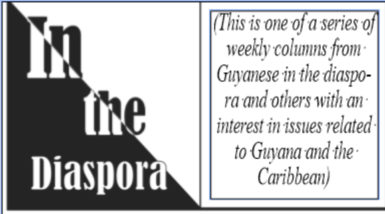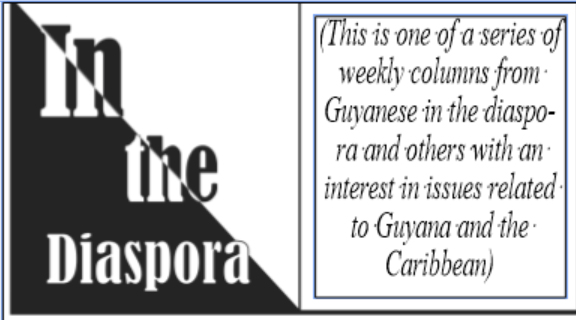Aziz Choudry
Aziz Choudry is associate professor and Canada Research Chair in Social Movement Learning and Knowledge Production in the Department of Integrated Studies in Education, McGill University, Montreal, and visiting professor at the Centre for Education Rights and Transformation in the University of Johannesburg’s Faculty of Education. His latest books, on which this article is partly based, are ‘Just Work? Migrant Struggles Today’ (co-edited with Mondli Hlatshwayo, Pluto Press, 2016) and ‘Unfree Labour? Struggles of Migrant and Immigrant Workers in Canada’ (co-edited with Adrian Smith, PM Press, 2016).
Caribbean scholars Eric Williams and CLR James laid out how the industrial revolution in England and the development of European capitalism depended on slavery.  Through the plantation owners, shipbuilders and merchants involved in the slave trade and the wealth they accumulated, banks and heavy industry were established in Europe, and capitalism’s reach expanded globally.
Through the plantation owners, shipbuilders and merchants involved in the slave trade and the wealth they accumulated, banks and heavy industry were established in Europe, and capitalism’s reach expanded globally.
The blood and sweat of slaves and indentured workers as well as that of Indigenous Peoples whose lands are still plundered and occupied, are foundational to capitalist development. And in the 21st century, with the global free market economy deeply rooted in these historical processes, the category of ‘unfree labour’ has been extended to include millions of migrant workers across the world.
Capitalist restructuring is a major driving force behind patterns of migration. Throughout the world, migrant workers provide pools of ‘cheap’ labour to be exploited by domestic and transnational economic interests.
These labour pools are pivotal to the functioning of many societies in the global North and the South, even as earlier contributions of migrant workers are too often forgotten in dominant versions of history. In our recent co-edited collection, “Unfree labour? Struggles of migrant and immigrant workers in Canada”, Carleton University legal scholar Adrian Smith and I argue that the tendency of some to relegate the term ‘unfree labour’ to the past (for example, referring to historical forms of slavery and indentured labour) or to reject its ongoing explanatory usefulness sits in stark contrast to the contemporary claims and struggles of migrant and immigrant workers and organizers in countries like Canada. The term ‘unfree labour’ captures the use of extra-economic compulsion, alongside what Marx termed the “dull compulsion of economic relations,” to exact labour power.
By “extra-economic,” we mean the use of political and legal compulsion specifically rooted in heavily restrictive citizenship and migratory status. This understanding helps to shed light on how “ordinary” labour exploitation becomes intensified, even transformed, under neoliberal migration, into super- or hyper-exploitation.
The term ‘unfree labour’ also invites interpretation on how historical change unfolds. It is not used to enforce a binary distinction with ‘free’ labour. Indeed, within capitalist relations, as demonstrated by Marx and others, the idea of ‘free labour’ is highly problematic as those so categorized must sell their labour power for subsistence wages and are therefore subjected to expropriation of the wealth they produce.
Because we need tools or concepts to interpret our unfolding history, unfree labour signifies a conceptual interpretation of the historical record on labour controls in capitalist societies. It provides a conceptual linkage between contemporary and historical experience. Far from novel, the general thrust behind neoliberal migration, we contend, is ongoing or continuous. In other words, as Adrian Smith notes, ‘unfree labour’ serves to recognize the historically entrenched use of politico-legal compulsion to hyperexploit and pacify labour while in the context of these patterns or continuities, leaving conceptual space for examination of specific qualities of and differences between migrant and immigrant workers and corresponding regimes of regulation. Thus we regard unfree labour as signaling an intricate and nuanced continuum of modes of economic and politico-legal compulsion.
In the context of labour migration, conditions of ‘unfreedom’ are often established through the denial of citizenship and residency rights, thereby maintaining connections between labour migrants and their home country. More specifically, the political economy of migration points us towards processes of incorporation, the term used to refer to the manner in which migrants are integrated into the dominant relations of production of the host society.
Canadian sociologist Vic Satzewich has argued that there are several primary forms of incorporation of foreign-born labourers, the specifics of each being reliant upon the ability of the workers to circulate in the labour market, and the nature of their citizenship status. Migrant workers (non-citizens) constitute a form of unfree wage labour as their ability to circulate in a labour market is limited by the temporary labour contract, tied to a single employer, which curtails their right to seek alternate employment.
One example is Canada’s Temporary Foreign Worker Program which, greatly expanded over the past decade, creates precarious employment and immigration status with marginal access to social rights. Most work permits for temporary foreign workers in Canada (and in comparable programs in many other countries) are restrictive valid for a specific work contract and tied to a single employer. Many of these workers say it is impossible to express their discontent against abuses such as forced and unremunerated overtime work, unsafe conditions, lack of access to healthcare, arbitrary withholding of wages, harassment, and threats of deportation. They often fear job loss because with it comes the loss of their work permit and immigration status.
The creation and maintenance of categories of workers with different sets of rights tied to their immigration status is a standard policy feature and capitalist strategy which is fundamental to how many economies function, facilitating the provision of reduced labour costs to employers.
In addition to those working under various temporary foreign worker programs, undocumented workers are particularly vulnerable to exploitation by employers seeking reduced labour costs and compliant workers. They may include people displaced by conflict, war, and political instability as well as others forced to seek work elsewhere. And just as it has been advantageous for economic elites to divide and rule working class people against each other, anti-immigrant sentiment yields dividends for political leaders seeking to draw attention away from the root causes of social and economic inequalities, as we have seen in recent elections and referendum results in the USA and the UK respectively.
Locked into a model of neocolonial structural adjustment, free trade and investment policies, countries that have grown dependent on exporting workers often have shrinking policy space to pursue other options for economic development. US sociologist Robyn Rodriguez argues that a ‘migration-as-development’ approach promoted by the World Bank and other intergovernmental organizations through temporary labour migration programs allows ‘employers to exploit foreign workers, absolve developing states from introducing truly redistributive developmental policies and relieve[s] states from extending the full benefits of citizenship to immigrants.”
Money transfers sent back by migrant workers now exceed official development assistance flows, and in most countries, outstrip foreign direct investment. One estimate suggests that worldwide remittance flows could top US $636 billion in 2017, while a World Bank projection states that $479 billion will flow as remittances to developing countries in the next year.
With the spread of neoliberal economic policies, across the world, many trade unions have failed or faltered in fighting back against deterioriating workplace conditions, radical transformations of work, the systematic erosion of worker power and growing social inequalities. Alongside their bureaucratization and containment of rank-and-file militancy, some unions have been indifferent or even hostile to migrant workers, and sometimes embrace exclusionary nationalist politics. The traditional industrial union model has been especially weak in organizing around and addressing issues of precariousness, race, and citizenship status.
In our recent co-edited book, “Just Work? Migrant Workers’ Struggles Today”, South African sociologist, Mondli Hlatshwayo and I write that in many of the dominant popular representations of migration today, the histories, systems and structures which underpin the terms and conditions of who moves between nation states and how and why they move are often as nameless as most of the migrants themselves.
The global free market economy has not led to the building of a ‘global village’ or a borderless world, despite what many of its advocates have promised. While many barriers to the mobility of capital have been dismantled through policies of liberalization and deregulation, the majority of the world’s people do not experience such freedom to move across borders. Simplistic, populist explanations which dehumanize migrants, criminalize their movements and obscure the reasons why people migrate continue to abound.
Yet around the world, important lessons are emerging from different models and strategies which migrant workers use to organize for labour justice and dignity, inside and outside of trade unions. This includes the struggles of domestic workers, farmworkers (including the thousands of Caribbean, Mexican and Guatemalan seasonal agricultural workers who have worked for up to eight months a year in Canada, for example), and many others. Examples outside of traditional unions include forms of self-organized community-based labour activism, worker committees and associations, workers’ centres, and advice offices.
In Canada, they include organizations like Justicia For Migrant Workers, Montreal’s Immigrant Workers Centre, and Toronto’s Workers Action Centre, as well as an national and international alliance of Filipino migrant workers, Migrante. Their struggles also challenge us to rethink ideas about how to rebuild strong, inclusive working class movements in the 21st century, and remind us of the relevance and meaning of the rallying cry: “Workers of the world, unite!”






